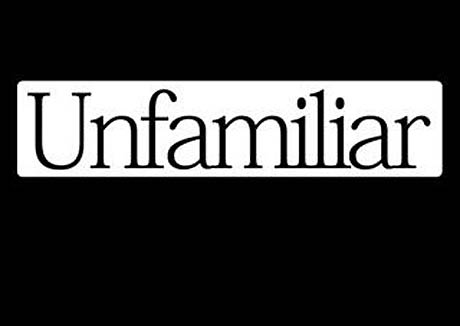As we previously reported, Unfamiliar Records head honcho Greg Ipp recently had some unkind things to say about the Canadian music industry, namely the state of grants and funding. Obviously, his comments have got people talking, which Ipp says wasn't his original intention.
In an interview with Exclaim!, Ipp says the letter was originally posted elsewhere, "just a little private thing with some industry people," but once it was reprinted, with his permission, on the net for all to read, there was no stopping the debate.
"From the position I've been working in, I've been seeing a lot of this stuff happen for the last five or six years," says Ipp about the grant and funding system in Canada. "It's been frustrating. We saw the latest round of VideoFACT approvals and saw the latest round of FACTOR approvals, and were just like, 'Oh, man' [laughs]. That was the end of it. I just had to say something about it."
The letter ended up drawing the attention of VideoFACT's Beverley McKee, who had a heated back-and-forth on Facebook with Ipp, and she has agreed to meet Ipp in person to chat further. While both sides have valid points - McKee's finite amount of funds and belief in a merit-based system and Ipp's idea that bigger image-based bands shouldn't be getting such a huge amount of those finite funds - the online conversation has managed to ruffle some feathers.
"There were some things she said that really upset some people," says Ipp, whose Unfamiliar act Japandroids were recently denied a demo grant for their album Post-Nothing. "[McKee says] the music industry is like sports - if you're good you'll get your grants, if you're good you'll do well. But who's to say what's good, and who's to even say good is what sells? So I pulled a bunch of SoundScan numbers for Bedouin Soundclash and Mobile and that sort of stuff.
"It's interesting to see the difference in their Canadian versus U.S. sales. In our experience, the U.S. sales would generally be higher because we're selling to a lot more people. But when I was looking at their numbers, they're really low. But then they'll go gold in Canada. And maybe it's because that's what the Canadian establishment has decided they're going to feed the Canadian public.
"That's why your Mobile or Bedouin Soundclash records will go gold; it's just because it's what's in people's faces. The grant system is a good portion of what allows this to happen."
McKee counters: "I don't agree with that because I think acts have achieved a certain amount of success here in Canada and now are starting again at rock bottom in the U.S. and they need to build a story over the course of whatever it takes to continue to build in the U.S. or in other territories... You know, breaking in Canada doesn't mean you're driving around in a Jaguar. With a small population base, I think that acts that are perceived as having a lot of money in their pocket actually don't have a lot of money."
McKee cites Metric as an example of a band that gets continued support from VideoFACT even though they are established in Canada. However, Ipp says spreading Metric's $70,000 in grant money around more evenly would be a better solution.
"When it comes to solutions," says Ipp, "I just see the idea that labels that prove they can actually sell product the way they're doing, or the way that Out of This Spark or Flemish Eye are doing it, where they're proving they can sell 1,000 units over the course of six months or a year and they can do it a couple of times, to me that indicates they have something that should be nurtured, that could be fostered. And in those cases, it'd be worthwhile to look at a lower tier of grant funding that will give us, say, $10,000 to put towards another recording."
But McKee doesn't share Ipp's view, stating it would be giving money to artists and labels who don't necessarily deserve it.
"I don't love the idea," she says, "because we make our awards based on merit. It is a majority vote by a board of directors made up of music industry and television professionals who have experienced a great deal of success in their career and hopefully would recognize talent and have that good A&R sensibility. I think when you allocate quotas to things it could potentially result in mediocrity."
McKee, however, hasn't invested much time in coming up a solution, as she doesn't believe there's a problem. (And, just for the record, she says, "Greg and I have had a really good conversation and I quite like the guy; we just disagree on certain things.")
"I really think things are running as they should be," she says. "VideoFACT's mandate is to help new and established Canadian talent; that's our official mandate. I think we're doing that; I think there is established talent on our winners' list and I think there's new acts that nobody's ever heard of too."
However, Ipp holds fast to the idea that the grants need to go to bands and labels that are working hard but are under the radar, as they're not image-based, spending their time working hard, not schmoozing hard. And he wants it known that he's not just kicking and screaming because he didn't get any grants.
"The biggest issue to this that I see is just that people say, 'You're just crying because you don't get the money.' It's really frustrating to see that because that's not what it's about. The issue is so much more complicated than that."
In an interview with Exclaim!, Ipp says the letter was originally posted elsewhere, "just a little private thing with some industry people," but once it was reprinted, with his permission, on the net for all to read, there was no stopping the debate.
"From the position I've been working in, I've been seeing a lot of this stuff happen for the last five or six years," says Ipp about the grant and funding system in Canada. "It's been frustrating. We saw the latest round of VideoFACT approvals and saw the latest round of FACTOR approvals, and were just like, 'Oh, man' [laughs]. That was the end of it. I just had to say something about it."
The letter ended up drawing the attention of VideoFACT's Beverley McKee, who had a heated back-and-forth on Facebook with Ipp, and she has agreed to meet Ipp in person to chat further. While both sides have valid points - McKee's finite amount of funds and belief in a merit-based system and Ipp's idea that bigger image-based bands shouldn't be getting such a huge amount of those finite funds - the online conversation has managed to ruffle some feathers.
"There were some things she said that really upset some people," says Ipp, whose Unfamiliar act Japandroids were recently denied a demo grant for their album Post-Nothing. "[McKee says] the music industry is like sports - if you're good you'll get your grants, if you're good you'll do well. But who's to say what's good, and who's to even say good is what sells? So I pulled a bunch of SoundScan numbers for Bedouin Soundclash and Mobile and that sort of stuff.
"It's interesting to see the difference in their Canadian versus U.S. sales. In our experience, the U.S. sales would generally be higher because we're selling to a lot more people. But when I was looking at their numbers, they're really low. But then they'll go gold in Canada. And maybe it's because that's what the Canadian establishment has decided they're going to feed the Canadian public.
"That's why your Mobile or Bedouin Soundclash records will go gold; it's just because it's what's in people's faces. The grant system is a good portion of what allows this to happen."
McKee counters: "I don't agree with that because I think acts have achieved a certain amount of success here in Canada and now are starting again at rock bottom in the U.S. and they need to build a story over the course of whatever it takes to continue to build in the U.S. or in other territories... You know, breaking in Canada doesn't mean you're driving around in a Jaguar. With a small population base, I think that acts that are perceived as having a lot of money in their pocket actually don't have a lot of money."
McKee cites Metric as an example of a band that gets continued support from VideoFACT even though they are established in Canada. However, Ipp says spreading Metric's $70,000 in grant money around more evenly would be a better solution.
"When it comes to solutions," says Ipp, "I just see the idea that labels that prove they can actually sell product the way they're doing, or the way that Out of This Spark or Flemish Eye are doing it, where they're proving they can sell 1,000 units over the course of six months or a year and they can do it a couple of times, to me that indicates they have something that should be nurtured, that could be fostered. And in those cases, it'd be worthwhile to look at a lower tier of grant funding that will give us, say, $10,000 to put towards another recording."
But McKee doesn't share Ipp's view, stating it would be giving money to artists and labels who don't necessarily deserve it.
"I don't love the idea," she says, "because we make our awards based on merit. It is a majority vote by a board of directors made up of music industry and television professionals who have experienced a great deal of success in their career and hopefully would recognize talent and have that good A&R sensibility. I think when you allocate quotas to things it could potentially result in mediocrity."
McKee, however, hasn't invested much time in coming up a solution, as she doesn't believe there's a problem. (And, just for the record, she says, "Greg and I have had a really good conversation and I quite like the guy; we just disagree on certain things.")
"I really think things are running as they should be," she says. "VideoFACT's mandate is to help new and established Canadian talent; that's our official mandate. I think we're doing that; I think there is established talent on our winners' list and I think there's new acts that nobody's ever heard of too."
However, Ipp holds fast to the idea that the grants need to go to bands and labels that are working hard but are under the radar, as they're not image-based, spending their time working hard, not schmoozing hard. And he wants it known that he's not just kicking and screaming because he didn't get any grants.
"The biggest issue to this that I see is just that people say, 'You're just crying because you don't get the money.' It's really frustrating to see that because that's not what it's about. The issue is so much more complicated than that."




